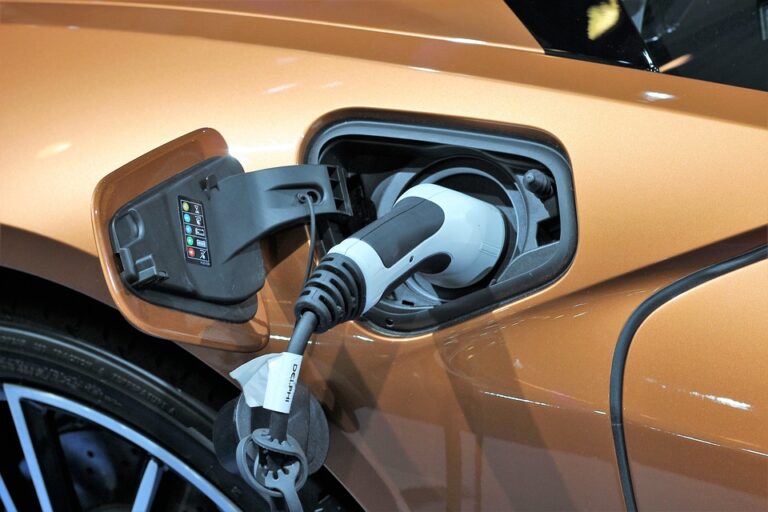The Future of EV Charging: Innovations and Trends to Watch
As the world shifts toward greener alternatives, the realm of EV charging technology is rapidly evolving. With advancements in innovation, infrastructure, and user experience, the landscape promises to change in pivotal ways over the coming years. This article explores the latest trends and innovations driving the future of EV charging.
The Current Landscape of EV Charging
Electric vehicles (EVs) are becoming increasingly popular, with global EV sales reaching 6.6 million in 2021, which represents a staggering 108% increase from the previous year. This shift means that the demand for innovative EV charging technology is surging. As consumers move from traditional gasoline-powered vehicles, the need for efficient, accessible, and adaptable charging solutions grows ever more pressing.
In fact, the International Energy Agency projects that by 2030, there could be over 125 million electric cars on the roads worldwide, significantly increasing the strain on existing charging infrastructure. This statistic illustrates the dire necessity for advancements in EV charging technology.
Innovations Driving Change
Rapid Charging Solutions
One of the most significant innovations in EV charging technology is the development of ultra-fast charging stations. These stations can charge a vehicle to 80% in as little as 15-20 minutes, drastically reducing waiting times compared to traditional chargers. For instance, companies like Tesla and Ionity are pioneering charging networks that can power vehicles quickly while providing the convenience of high-speed access along major travel routes.
Wireless Charging Technology
Imagine driving your EV into a parking space and having it charge automatically without ever plugging in. This futuristic scenario is becoming a reality thanks to wireless charging technology. Using electromagnetic fields, these systems allow for convenient charging without the need for cables, enhancing user experience significantly.
Pilot projects in cities like Berlin and Stockholm have already seen success, with the implementation of stationary and vehicle-to-grid technologies that can substantially increase charging efficiency while reducing the environmental impact of charging electric vehicles.
Battery Swapping Services
A concept once reserved for sci-fi movies, battery swapping is gaining traction in the real world. Companies like NIO in China are introducing battery swap stations, where drivers can quickly exchange their depleted batteries for fully charged ones in a matter of minutes. This service bypasses the traditional charging wait time and offers a seamless solution for EV owners, especially in urban areas where space for charging stations is limited.
Emerging Trends to Watch
Smart Charging Solutions
The future of EV charging technology is also leaning heavily into smart technology. Smart charging systems enable users to charge their vehicles during off-peak hours, maximizing energy cost savings and reducing demand on the grid during peak usage times. By integrating mobile applications, drivers can monitor their charging schedules in real-time, ensuring that they are always powered up when they need to be.
Integration with Renewable Energy
As the demand for sustainability rises, the integration of renewable energy technologies into EV charging stations is becoming increasingly important. Solar and wind energy can power charging stations, making them greener and reducing reliance on fossil fuels. It’s estimated that by 2030, about 50% of charging stations will be powered by renewable energy sources, creating an ecosystem of sustainable mobility.
Autonomous Charging Stations
The marriage of autonomous vehicle technology and EV charging is a trend that promises to revolutionize how we perceive and interact with charging stations. Imagine an EV that can drive itself to a nearby charging station, plug in, and return to your location once it is fully charged. While this concept is still in its infancy, advancements are being made, and companies are actively testing systems that will make this a seamless reality.
Conclusion: What Lies Ahead for EV Charging Technology
As we move into a more electric future, the evolution of EV charging technology presents many exciting developments. Innovations like ultra-fast charging, wireless charging, battery swapping, and the integration of smart technologies are paving the way for an environmentally friendly and user-centric approach to transportation.
By keeping an eye on these trends, consumers, manufacturers, and policymakers can work together to build a future where EV charging is efficient, accessible, and sustainable. For more insights on the sustainability movement and electrification trends, check out our articles on "The Rise of Electric Vehicles" and "How Renewable Energy is Shaping Transportation."
Suggested Internal Links:
Suggested External Links:
Image Suggestions:
-
Image 1: Ultra-Fast EV Charging Station
Alt text: EV Charging Technology: Ultra-Fast Charging Station
- Image 2: Wireless EV Charging In Action
Alt text: EV Charging Technology: Wireless Charging Technology


